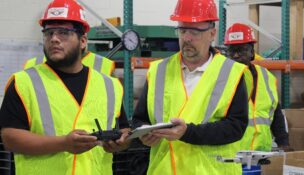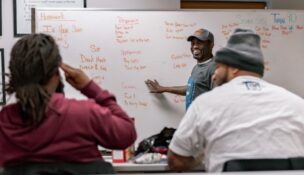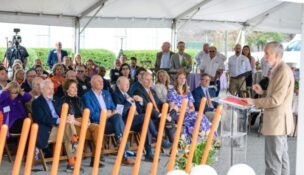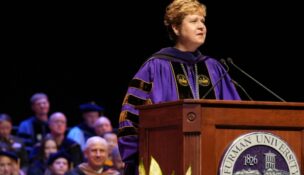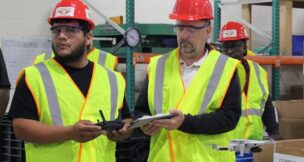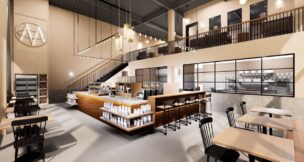Piedmont Tech opens doors to next generation of manufacturing
Molly Hulsey //October 8, 2020//
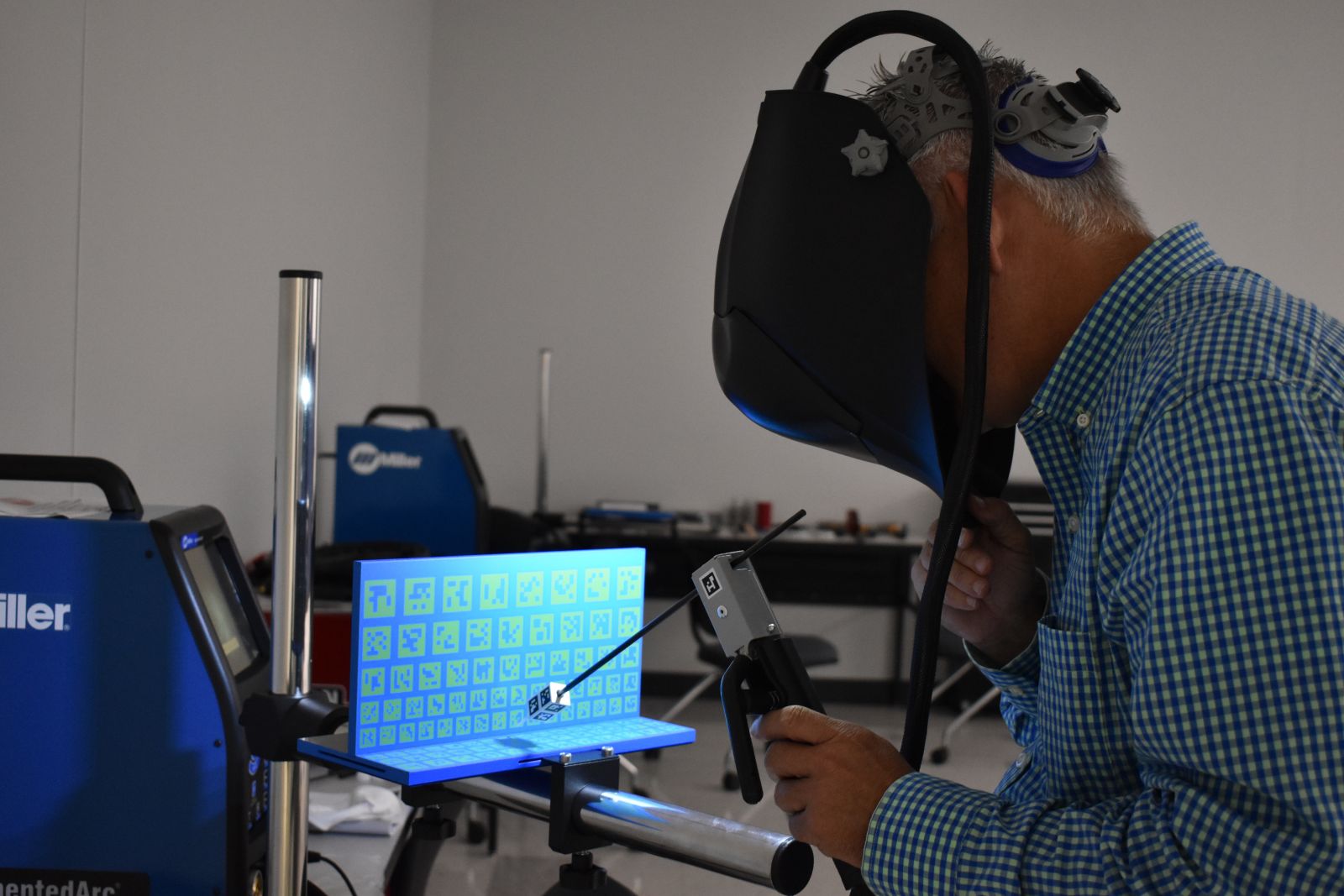 Welding projects don’t always clean up easily, and even scrap metal can be a commodity at times. Especially for beginners in the first stages of the learning process.
Welding projects don’t always clean up easily, and even scrap metal can be a commodity at times. Especially for beginners in the first stages of the learning process.
So Piedmont Technical College’s William H. “Billy” O’Dell Center for Manufacturing Excellence not only houses a hall of blue-curtained welding stalls complete with sanding stations and other hookups. It also gives neophytes a shot at donning a helmet and letting virtual sparks fly.
Rusty Denning, associate vice president of economic development and continuing education at Piedmont Tech, pointed a plastic welding stick, marked with QR-codes, at what appears to be just another cyan block of plastic checkered with more QR-squares.
But what Denning sees — and what the casual viewer can glimpse through an adjoining screen — is a bar of iron being sealed to another bar of iron with a fiery blue-green computerized glow.
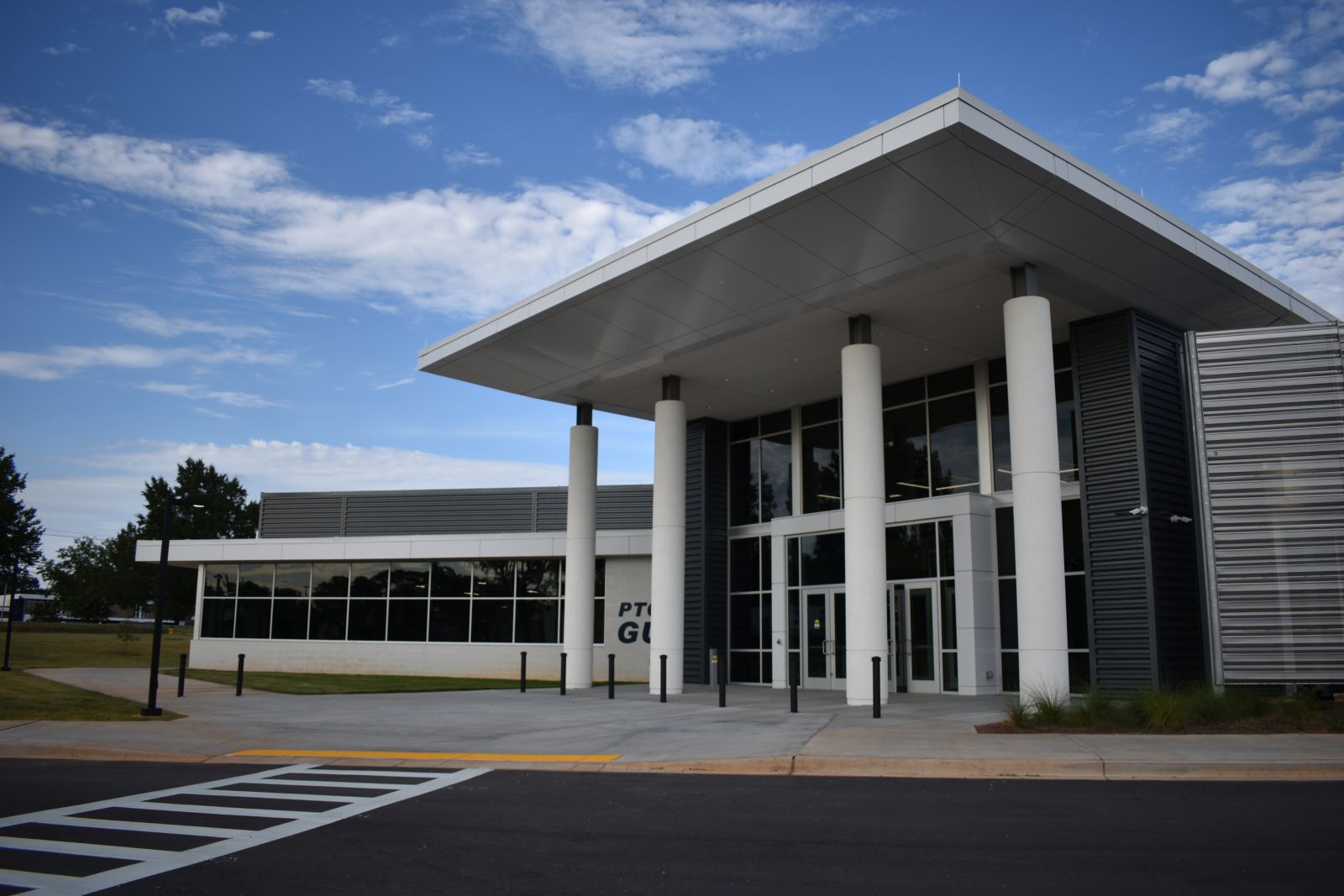 “When you’re in there, welding,” Denning said, gesturing to the welding hall next door to the classroom housing the augmented reality welding kit, “you’re using gases and you’re using metals, and you’re doing nothing but just blazing through them. And you’re not even welding properly.”
“When you’re in there, welding,” Denning said, gesturing to the welding hall next door to the classroom housing the augmented reality welding kit, “you’re using gases and you’re using metals, and you’re doing nothing but just blazing through them. And you’re not even welding properly.”
Conversely, the augmented reality welder helps students perfect the motions before even putting a stick to real steel with a mentor looking over their shoulders.
And this is just one of many tools Greenwood’s Piedmont Technical College campus uses to train up the next generation (or retrain the current generation) of welders, mechatronics engineers and machinists at its glistening 45,000-square-foot manufacturing center.
“They seem to be the three programs that we see the most growth in but, unfortunately, in the buildings that they were in, we were kind of locked in. There was nowhere to expand to,” Dennings said.
The building, completed in 2019, has let in a trickle of students for brick-and-mortar classes — many of Piedmont Tech’s classes remain online — but it has yet to be unveiled to the general public, which, at least in Greenwood County, contributed to the building’s construction, a capital project funded up to 40% through a penny sales tax adopted by voters in 2016.
Donors including Countybank also invested the project through the PTC Foundation, which was also accompanied by a $1.5 million federal grant and Palmetto State support, according to a news release.
In early 2019, M.B. Kahn launched construction on the $14.8 million center at a plot of land, gifted by Edward and Eizabeth Moss, off South Emerald Road. Chris Stone, architect with LS3P, gave the structure its ergonomic design, crafted with flexibility and energy efficiency in mind — lights flick off when a room empties of people. The center is named for the late Sen. Billy O’Dell, an advocate of technical education and a leading force in the development of Ware Shoal’s O’Dell Corp., a cleaning product manufacturer.
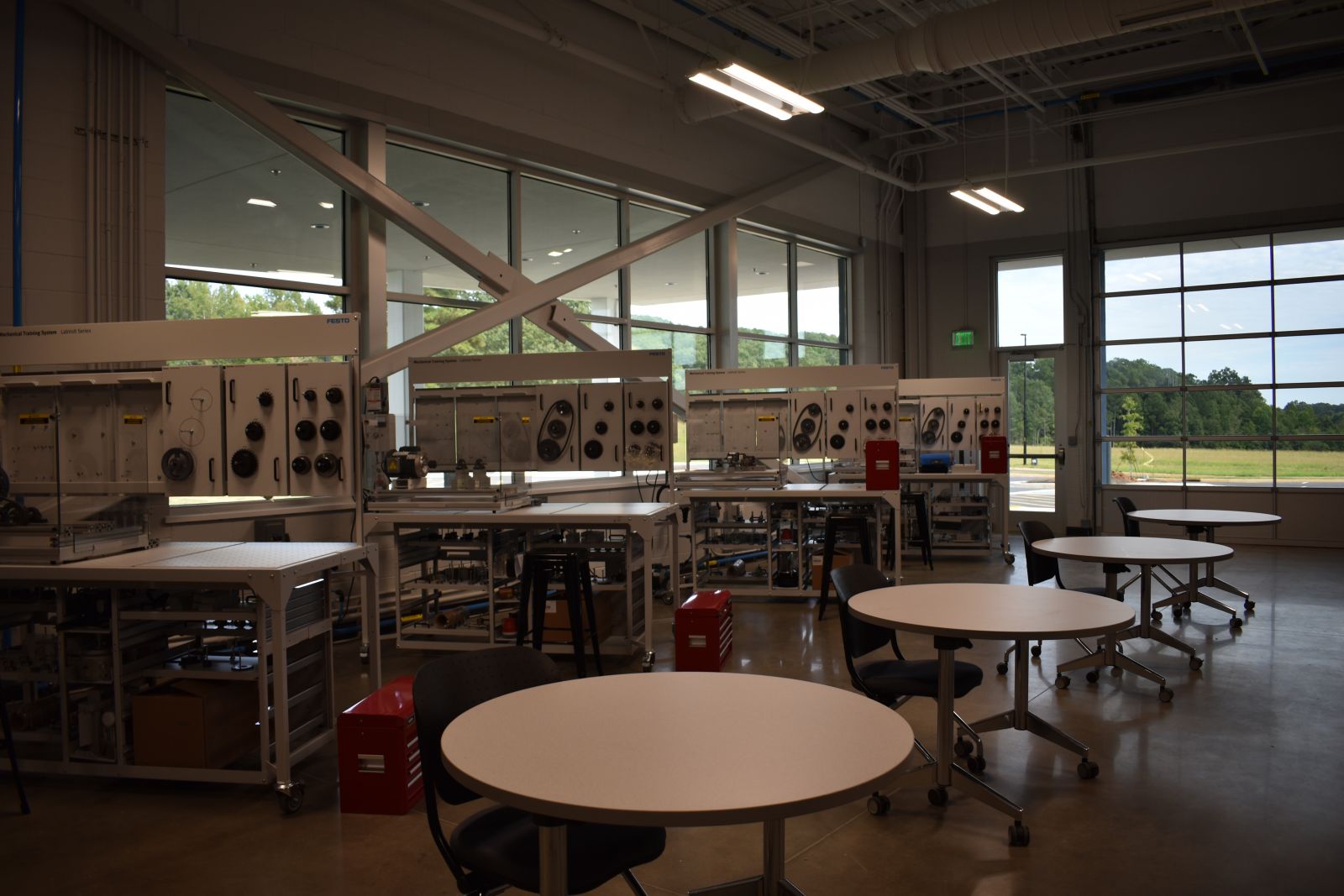 “This facility — the O’Dell Center — will serve as a valuable magnet to attract further investment in the region,” Ray Brooks, president of PTC, said in a release when the school held a public groundbreaking for the project in 2018. “Advanced manufacturing enterprises will locate where they know they can hire qualified people trained in the specific skills needed to advance their missions.”
“This facility — the O’Dell Center — will serve as a valuable magnet to attract further investment in the region,” Ray Brooks, president of PTC, said in a release when the school held a public groundbreaking for the project in 2018. “Advanced manufacturing enterprises will locate where they know they can hire qualified people trained in the specific skills needed to advance their missions.”
Greenwood already serves as a manufacturing hub for the state with companies like Eaton Corp. and Fujifilm Manufacturing listed as the largest employers after Self-Regional Healthcare, the county school district and state government offices, according to an International Economic Development Council report.
About 20% of the county’s workforce clocks in at a manufacturing facility compared to the total 15% in combined Greenville, Anderson, Pickens and Laurens county data from the Department of Employment and Workforce. But manufacturing employers across the county and the Upstate as a whole are still wrestling with finding enough workers with the right stuff, especially as smart manufacturing — of Manufacturing 4.0 — technologies like virtual reality and artificial intelligence begin to become a prevailing force in the sector.
“Yes, there is a shortage of individuals at manufacturers in positions, and it’s because of the skill sets needed for those positions,” Dennings said. “It’s not that they don’t have people coming in all the time applying for jobs. Those individuals just don’t have the skill sets for those jobs that they’re applying for.”
He cites a number of life-long manufacturing employees who expressed concern that the field they entered years before has left them behind in terms of automation and other technologies, coupled with workforce complaints from company partners.
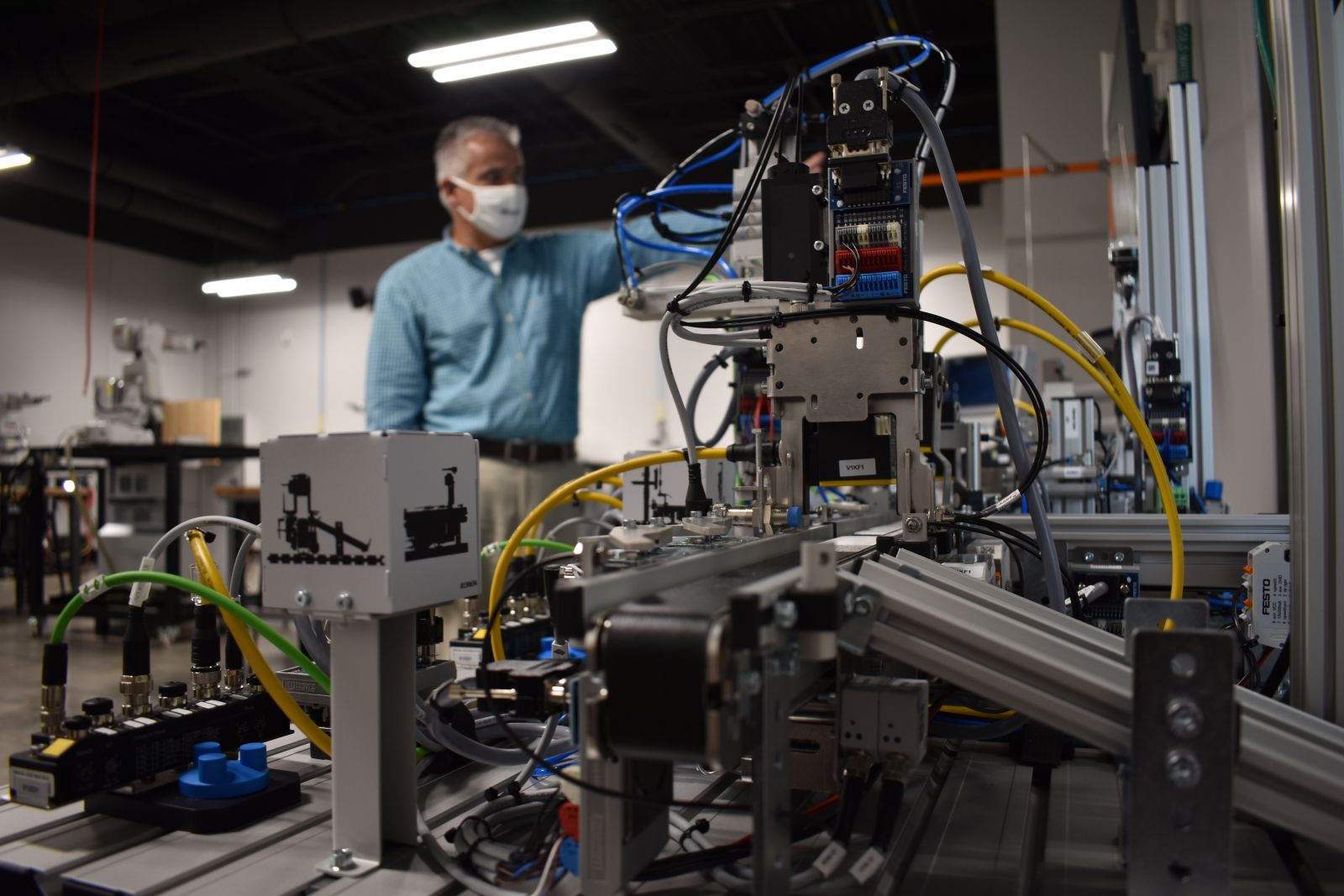
In order to fill this void, Piedmont Technical College partners with manufacturers to best train students in the way that they should go, by the book of future and current employers. Existing companies can use classrooms and labs to train their existing employees and also offer extensive apprenticeship programs to students. The center offers both hydraulics training — which tends to be favored by legacy industry — as well as that in pneumatic systems seen in upfit facilities.
Apprenticeship partners include ZF, Fuji, Ascend, Greenwood Mills, Samsung, among others, which help the school fulfill its “Job Ready Guarantee.” This means that if graduates aren’t ready for the job starting on day one, the company can send them back for additional training free-of-cost to the student and company.
“Mechatronics is the standard curriculum, but each one of those companies have a little something special that we’ve added, which is a separate course just for their students to make up that part of our apprenticeship program,” Denning said. “The majority of that has been our mechatronic program. Now, we do it in other programs as well, but that just happens to be one of the ones that — going back to the need — companies just had that need for maintenance technicians, so they were more apt to do apprenticeships with those maintenance programs.”
One of the most striking examples of this is embodied by a lineup of robotic arms, such as those used in a production line, provided by ABB and programmed and re-wired by Piedmont Tech students. All campuses also received a “miniature-factory” set-up that allows students to program robotic arms on a small scale based on the criteria coded into the computer guiding an infrared scanner.
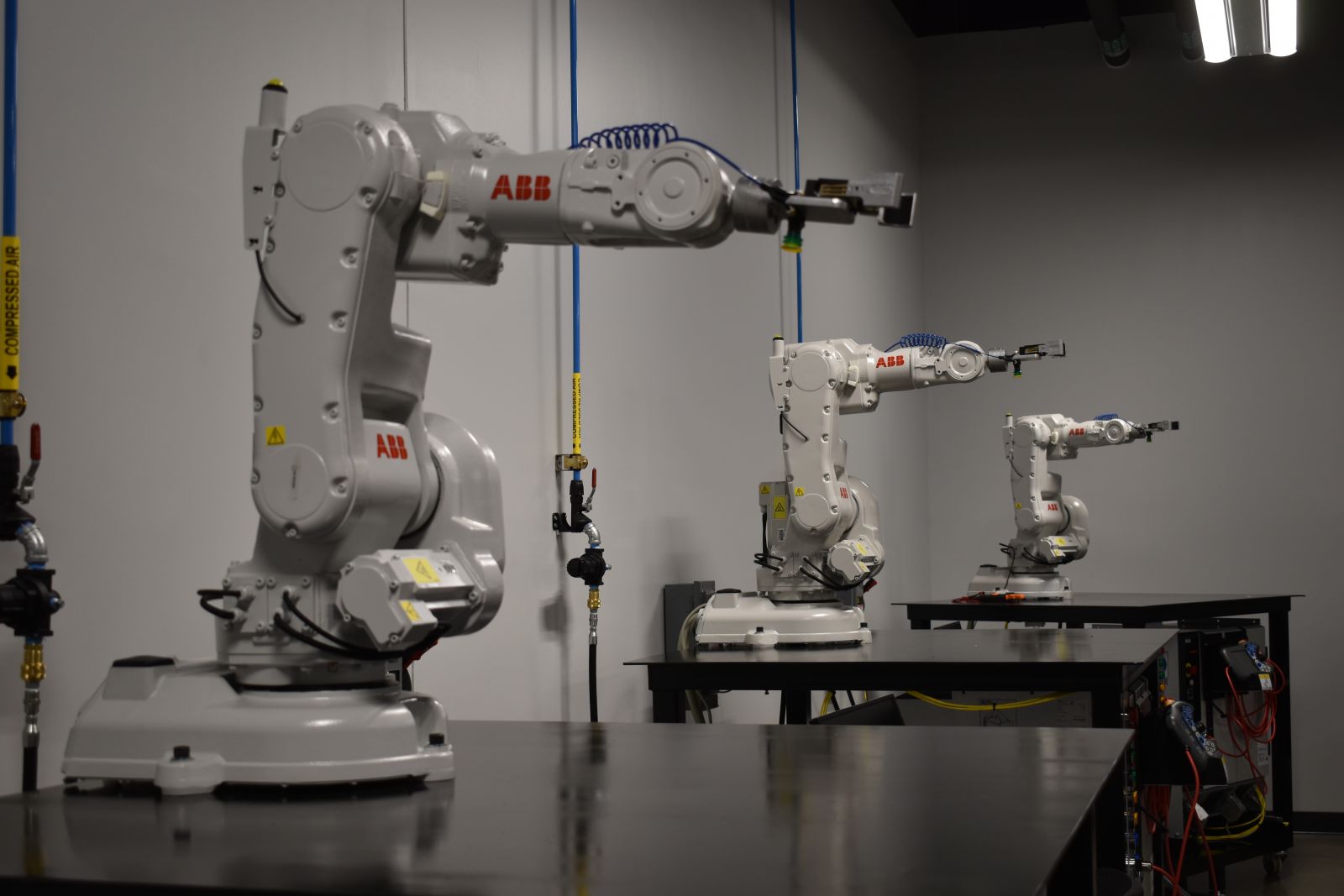 Originally, the AI company only hosted training facilities in Michigan and Alabama, and by customer request, began to seek out an additional site in the Southeast.
Originally, the AI company only hosted training facilities in Michigan and Alabama, and by customer request, began to seek out an additional site in the Southeast.
ABB discovered Piedmont Technical College’s Center for Advanced Manufacturing in Laurens, where it donated a small army of robotic arms to train both students and industry customers in 2018. Additional robots were then moved to the Billy O’Dell Center once it opened. Piedmont Tech instructors can also become certified to teach ABB standards, which helps save the company wages for additional instructors and adds feathers to mechatronic mentors’ ever-evolving hats.
The school is the only participant in the ABB robotics training program in the nation, Denning said.
This story originally appeared in the Oct. 5 2020, print edition of the GSA Business Report.






